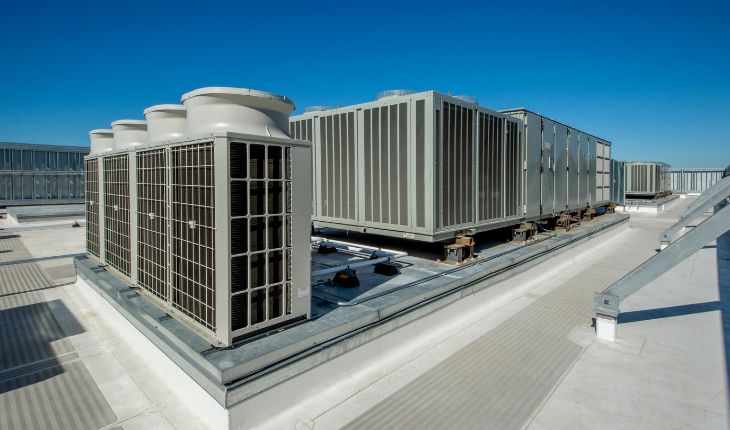.jpg)
In 2023, the global heat recovery steam generator market size was valued at approximately USD 1.20 billion. This market is poised for substantial growth with a projected compound annual growth rate (CAGR) of 4.60% from 2024 to 2032, estimated to reach USD 1.81 billion by the end of the forecast period. This blog offers an in-depth analysis of the HRSG market, exploring its current landscape, growth drivers, challenges, and the evolving roles of key industry players.
Market Outlook
The HRSG market is crucial for its role in enhancing energy efficiency and reducing carbon footprints in various industries. As global energy demands increase and environmental concerns rise, HRSGs are becoming increasingly significant in energy generation and conservation strategies.
Get a Free Sample Report with Table of Contents – https://www.expertmarketresearch.com/reports/heat-recovery-steam-generator-market/requestsample
Report Overview
This report provides a detailed examination of the global HRSG market from 2024 to 2032. It highlights market size, projected growth, dynamics, segmentation, and the recent developments influencing market trends. The analysis delves into the strategies deployed by key market players to navigate challenges and capitalize on growth opportunities in this evolving landscape.
Market Size and Growth Forecast
Starting from a solid foundation of USD 1.20 billion in 2023, the HRSG market is forecasted to grow significantly, reaching an estimated USD 1.81 billion by 2032. This growth trajectory is indicative of the increasing integration of HRSG systems in power plants and other industrial applications to improve efficiency and sustainability.
Market Dynamics
Market Drivers
Increased Focus on Energy Efficiency: As global emphasis on energy efficiency strengthens, HRSGs are critical for capturing waste heat and converting it into additional energy, thereby maximizing output from power generation units.
Expansion of Combined Cycle Power Plants: The expansion of combined cycle power plants, which utilize HRSGs to extract maximum energy from natural gas combustion, significantly contributes to market growth.
Stringent Environmental Regulations: Tightening global environmental regulations are pushing industries toward technologies that reduce carbon emissions and enhance operational efficiency, where HRSGs play a pivotal role.
Market Challenges
High Initial Investment Costs: The high cost of installing HRSG systems can be a significant barrier for some operators, impacting market growth.
Technical Challenges and Maintenance: The operation and maintenance of HRSGs involve complex technical requirements that can pose challenges for efficient functionality.
Market Volatility: Fluctuations in global energy markets and industrial activities can affect the demand for HRSG systems.
Market Segmentation
Component Insights
Horizontal HRSG
Vertical HRSG
End-user Insights
Power Generation
Industrial (Chemical, Petrochemical, and Others)
Application Insights
Cogeneration
Combined Cycle Plants
Regional Insights
North America: A leading region due to advanced energy infrastructure and stringent environmental regulations.
Europe: Significant growth driven by the EU's aggressive emission reduction targets and the adoption of green energy technologies.
Asia-Pacific: Rapid expansion due to industrial growth in countries like China and India, coupled with increasing investments in energy-efficient technologies.
Key Players
The HRSG market is characterized by the presence of several key industry players:
Thermax Limited: Known for its innovative and efficient HRSG solutions tailored to meet diverse industry needs.
John Wood Group PLC: A global leader in delivering project, engineering, and technical services to energy markets.
Kawasaki Heavy Industries, Ltd.: Offers high-quality HRSGs that contribute significantly to thermal power plant efficiency.
Mitsubishi Hitachi Power Systems Ltd: Specializes in advanced HRSGs that support the performance of highly efficient power plants.
General Electric Company: A major player with a strong portfolio of power generation technologies, including HRSGs.
Babcock & Wilcox Enterprises, Inc.: Known for its robust energy and environmental technologies.
Belleli Energy, Spa: Specializes in the manufacture of heavy equipment for the oil & gas, power, and petrochemical industries.
Cleaver-Brooks, Inc.: Focuses on integrated boiler room solutions that include HRSGs.
Clayton Industries Inc.: A provider of industrial boilers and steam generator systems.
Market Trends
Advancements in Heat Recovery Technologies: Ongoing technological innovations are enhancing the efficiency and functionality of HRSG systems.
Integration of Renewable Energy Sources: Increasing incorporation of HRSGs in plants using renewable energy sources to improve overall efficiency.
Shift Towards Modular HRSG Systems: The trend towards modular HRSG designs is growing due to their flexibility and reduced installation time.
Industry News
Recent developments include new product launches, strategic alliances to enhance geographic presence and technological capability, and significant investments in R&D to innovate more efficient HRSG solutions.
FAQs
What is driving the growth of the global HRSG market? Key drivers include the increased focus on energy efficiency, expansion of combined cycle plants, and stringent environmental regulations.
What challenges does the HRSG market face? Challenges include high initial investment costs, technical and maintenance complexities, and market volatility affecting demand.
Which region holds a significant share in the HRSG market? North America holds a significant market share, with Europe and Asia-Pacific also showing strong growth.
How are key players influencing the HRSG market? Key players are driving innovation, expanding geographically, and improving HRSG functionalities to meet evolving market demands.
What trends are shaping the HRSG market? Trends include technological advancements in heat recovery, integration with renewable energy sources, and the shift towards modular HRSG systems.
How is the market adapting to new technology and environmental needs? The market is adapting through continuous technological innovations and by integrating systems that are compatible with renewable energy technologies.














Write a comment ...